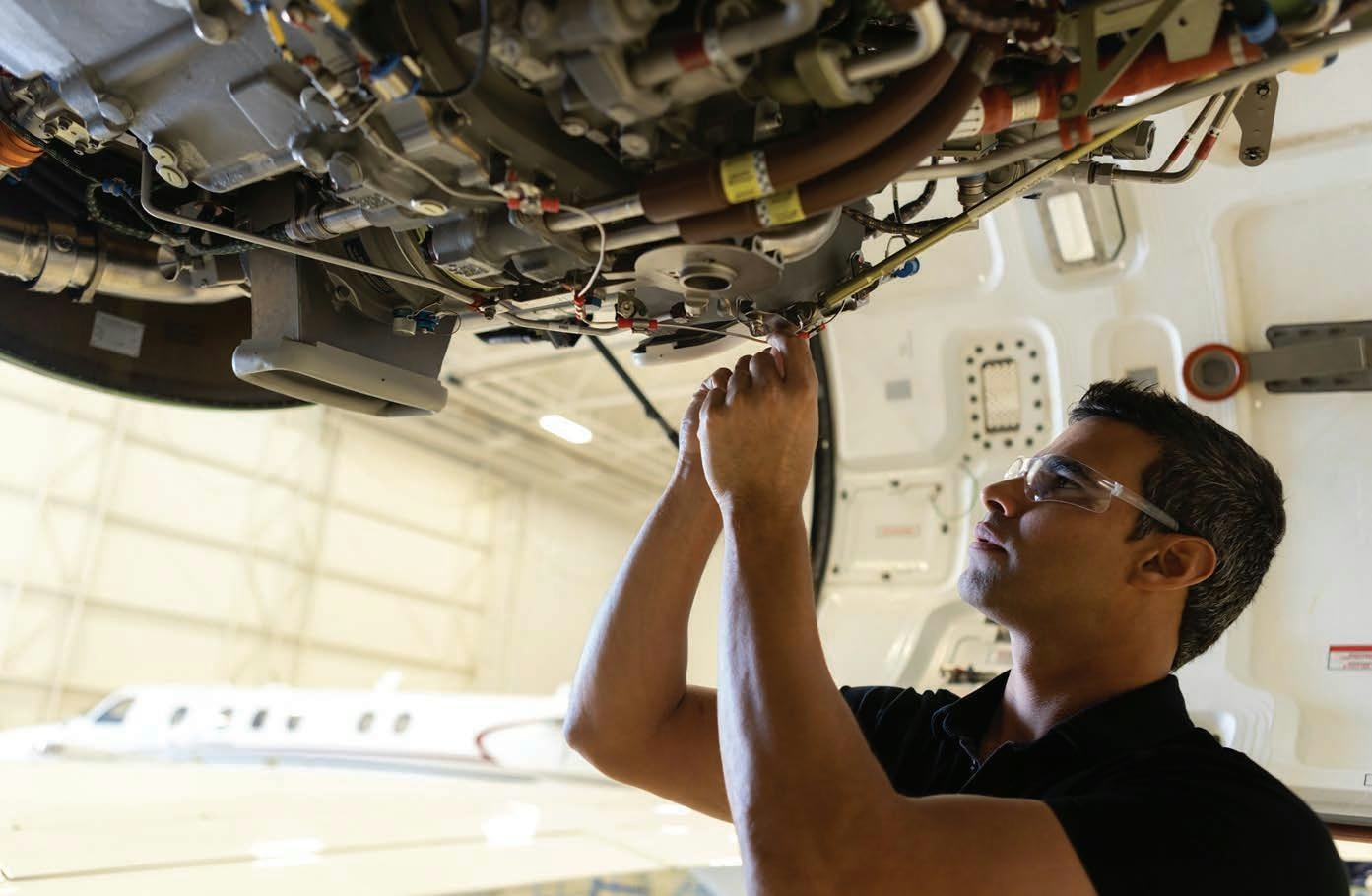AeroGenie — Votre copilote intelligent.
Tendances
Categories
Aging Aircraft Fleet Presents Maintenance Opportunity for Nigeria and Africa

Aging Aircraft Fleet Presents Maintenance Opportunity for Nigeria and Africa
Africa’s commercial aviation sector is confronted with a distinctive challenge: it operates the oldest aircraft fleet globally, with an average age exceeding 17 years—nearly three times the global average of six years. This aging fleet significantly increases the demand for Maintenance, Repair, and Overhaul (MRO) services, as older aircraft necessitate more frequent and comprehensive inspections to maintain safety and operational reliability.
Challenges Facing Nigerian Airlines and the MRO Market
Nigerian airlines, in particular, face considerable obstacles in addressing MRO needs. The scarcity of adequate local maintenance facilities compels carriers to send their aircraft abroad for essential checks, resulting in elevated costs, extended turnaround times, and diminished fleet availability. Industry experts caution that this reliance on foreign MRO services not only places financial strain on airlines but also impedes fleet expansion and weakens competitive positioning. This is especially critical as regional competitors adopt more flexible operational strategies, such as dry-leasing, to mitigate risks.
Despite these challenges, Nigeria’s MRO market holds significant potential. The country hosts one of Africa’s largest airline populations, yet the number of aircraft in active service is declining, primarily due to the lack of domestic facilities capable of performing critical C and D checks. The absence of a major MRO hub is widely regarded as a key factor undermining the sustainability and growth prospects of Nigerian carriers.
Aero Contractors represents a notable exception within this landscape. The company operates a maintenance facility that services its own fleet and, to a limited extent, other domestic airlines. However, the facility’s capacity and workforce remain insufficient to meet the broader market’s urgent demands. Under the leadership of Managing Director Capt. Ado Sanusi, Aero Contractors has expanded its capabilities, recently obtaining approvals from Morocco, Mongolia, Senegal, and Ghana to service aircraft such as the Boeing 737NG and Airbus A319 families. Capt. Sanusi emphasized the company’s ambition to become a comprehensive service provider for all airlines operating in Nigeria, reflecting the growing regional demand for MRO services.
Emerging Infrastructure and Strategic Developments
A significant advancement in Nigeria’s MRO capacity is the forthcoming Ibom Air MRO facility in Akwa Ibom State. Once operational, this facility is expected to substantially reduce the approximately $1 billion Nigerian airlines currently spend annually on overseas maintenance. As the largest MRO facility in West and Central Africa and the fourth largest on the continent, the Ibom MRO can accommodate two Boeing 747s side by side or up to eight aircraft simultaneously. This scale of capacity has the potential to transform Nigeria into a regional MRO hub, conserving foreign exchange and facilitating fleet modernization efforts.
Market responses to the aging fleet have been varied. Some analysts express concern regarding Nigeria’s competitive position, particularly as airlines such as Air Peace adjust their fleet strategies by converting Embraer orders to newer E2 jets. In response, government initiatives are increasingly focused on ensuring reliable domestic air services and promoting fleet renewal.
The evolving aviation landscape also presents a broader opportunity for technological integration. The adoption of advanced technologies, including artificial intelligence, could drive innovation in maintenance and smart mobility solutions. Given the limited research on such technologies in emerging economies, Nigeria and Africa have the potential to bypass traditional barriers, modernize their fleets, and address critical mobility challenges.
As Africa’s aviation sector strives to balance safety, cost efficiency, and modernization, the development of local MRO capacity emerges as both a pressing necessity and a strategic opportunity for sustainable growth.

Emirates Unveils Cabin Design for New Boeing 777X

Eighteen Years On, the Airbus A380 Remains Central to a $34 Billion Airline

How a boom in luxury airline seats is slowing down jet deliveries

Navitaire Outage Attributed to Planned Maintenance

Airbus Plans Record Delivery of 870 Aircraft in 2026

DigiYatra Debuts Outside Aviation at India AI Impact Summit

Vietnam Orders Strengthen Boeing’s Commercial Outlook

Airbus Signals Uncertainty Over Future A400M Orders

JobsOhio Awards $2 Million Grant to Hartzell Propeller for Innovation Center

Collins Aerospace Tests Sidekick Autonomy Software on YFQ-42A for U.S. Air Force CCA Program
